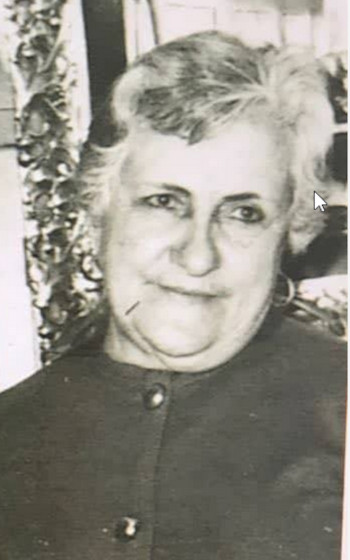Benigna Dávalos Villavicencio (Riobamba, ca. 1910 – Quito, ca. 1960) was an Ecuadorian composer, poet, and lyricist known for her significant contributions to the pasillo genre, a traditional Ecuadorian music style. She is best remembered for writing both the lyrics and music of the renowned pasillo “Ángel de Luz,” which became a classic in Ecuadorian music and was later popularized in Peru as “Rayo de Luz.” Dávalos was a central figure in Quito’s cultural scene, hosting gatherings with renowned musicians and intellectuals. Her legacy endures through her music and evocative lyrics, capturing the emotional depth and melancholic spirit of the pasillo.
Literary and Musical Career
Benigna Dávalos is best known for her contributions to Ecuadorian music, particularly for composing the iconic pasillo “Ángel de Luz”, which she both wrote and composed in the mid-20th century. This song, deeply emotional and poetic, has become a cornerstone of Ecuador’s pasillo tradition. The lyrics of “Ángel de Luz” evoke themes of love, longing, and despair, characteristic of the pasillo genre, which has often been described as the musical expression of Ecuadorian sorrow.
Her work in “Ángel de Luz” is especially poignant, with lyrics that speak of unrequited love and the pain of loss:
“Los labios que no besan, son pétalos muertos,
Son himnos sin notas, son astros sin luz,
Los pechos que no aman, son noches polares,
Sarcófagos tristes do alberga el dolor.”
English translation:
“The lips that do not kiss, are dead petals,
They are hymns without notes, they are stars without light,
The hearts that do not love, are polar nights,
Sad sarcophagi where pain resides.”
In Peru, the song gained recognition under the name “Rayo de Luz”, popularized by the duo Las Limeñitas.
While she is most famous for “Ángel de Luz,” Dávalos also contributed other works to the pasillo genre, including the piece “La Mariposa”. Despite her significant contributions, she was sometimes mistakenly credited with the pasillo “Brumas,” a confusion later clarified, as the work was based on a poem by Antonio Toledo.
Recognitions and Accolades
- “Ángel de Luz” remains one of the most iconic pasillos in Ecuador and has been performed and cherished for decades.
- In 2018, Dávalos was honored with a statue at the Museum of the Ecuadorian Pasillo in Quito, commemorating her as one of the most significant figures in Ecuadorian music.
- Her contributions to the pasillo genre, often described as the “melody of Ecuadorian despair,” reflect her deep emotional connection to her art and have left an indelible mark on the country’s cultural landscape.
Duo Benítez y Valencia sing “Angel De Luz” written by Benigna Dávalos Villavicencio
Pasillo songs written by Benigna Dávalos Villavicencio performed by Ecuadorian singers
References
- Wikipedia, “Benigna Dávalos Villavicencio.” Retrieved on October 15, 2024. Click to view.
- Wikiwand, “Benigna Dávalos Villavicencio.” Retrieved on October 15, 2024. Click to view.
- Museo del Pasillo, “Benigna Dávalos.” Retrieved on October 15, 2024. Click to view.

